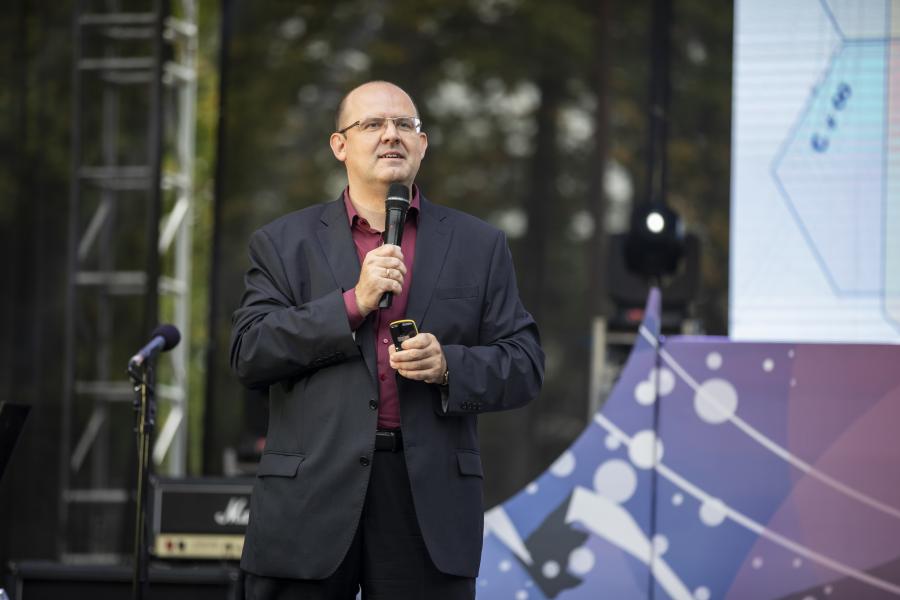MEPhI Rector Vladimir Shevchenko gave a lecture “Who is an engineer-physicist?” at the scientific show “VECTOR.FEST”. The answer to this seemingly simple question turned out to be far from obvious. However, answering simple questions - about how this world works and what we are doing here - is generally the most difficult. You can't do without philosophy here.

Before talking about engineers and physicists, it’s worth thinking about where science comes from. Science, according to the rector, has two sources. One goes back to the magical ideas of humanity, magical thinking, which assumes that there is a world of spirits, and if you interact with it correctly, know the spells or have a magic wand, you can make it work for you. The natural scientist Francis Bacon expressed this idea in a succinct formula: “Knowledge is power.” If I know something, but my counterpart does not, then I have a certain advantage over him - technical, military, commercial. And this pattern always works - from antiquity to the present. Just remember the famous episode when Archimedes burned enemy ships by directing the sun's rays at them using an optical device.
Another source originates in the Abrahamic, monotheistic religions. The main idea is that it is impossible to force the Creator to do anything. Even with the help of a magic formula or the philosopher's stone. But you can explore the created world, try to understand how it works and what place we occupy in it. An example of this approach to scientific research is provided by Albert Einstein. When a scientist was asked what made him do science, he answered: “I want to know God’s plans, everything else is details.”
The first tradition was vividly embodied in a quote from breeder Ivan Michurin: “We cannot expect favors from nature. Taking them from her is our task.” The second is in the lines of Alexander Pushkin:
“So we’re but few, we chosen happy idlers,
Who, of mere use neglectful and disdainful,
Are high priests of the One, the Beautiful.”
Vladimir Shevchenko is sure: despite the fact that in real life these two traditions are often mixed, for a serious conversation about fundamental and applied science it is useful to understand the difference in the motives of researchers.
And here the conversation that took place 40 years ago between British Prime Minister Margaret Thatcher and a young theoretical scientist from CERN John Ellis is indicative. When asked by Thatcher what he was doing, Ellis replied that he was thinking about experiments that his colleagues could conduct, and hoped that the results obtained would differ from his assumptions and scientific predictions.
“A scientist makes a prediction and hopes that it will not be confirmed. Because the scientist is looking for new knowledge. The more surprising, unexpected, and wild the result of an experiment is, the more valuable it is for science. The ideal TK for a scientist: “Go there - I don’t know where, bring that - I don’t know what.” A real scientist does not invent anything, he looks for facts that exist independently of him and discovers new things,” says Vladimir Shevchenko.
Unlike a scientist, an engineer has a plan and a goal. An engineer does not discover new laws, but creates something that did not exist before him.
Discoveries in fundamental science give rise to new technologies, but there is also a feedback loop when new technologies make it possible to take the next step in fundamental research.
“The training of a modern physics engineer is not the training of an engineer who has been trained in physics, and not the training of a physicist who has retrained as an engineer. This is the training of a person who deals with engineering systems so complex that their understanding can only be achieved on the basis of serious scientific training. Otherwise, he will not be able to design these systems,” the rector said.
One of the key tasks of MEPhI is precisely to train such specialists - research engineers who combine knowledge of physics, mathematics, digital technologies, and engineering disciplines, capable of solving problems of various levels of complexity, and thinking broadly and systematically.





